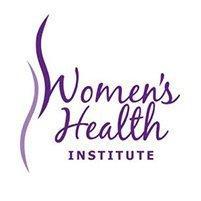Hysterectomy Specialist

Women's Health Institute
OB-GYNs & Nurse Practitioners located in Peoria, IL
Dr. Larry Overcash and Erin Overcash WHNP take great pride in serving the residents of Peoria, Illinois. Their state-of-the-art facility, the Women’s Health Institute, offers patients the best in quality healthcare. Dr. Overcash specializes in many types of surgical procedures, including pelvic reconstruction and hysterectomies.
Hysterectomy Q & A
What Is the Difference Between a Partial and a Complete Hysterectomy?
A partial hysterectomy is when only the uterus and the fallopian tubes are removed. A complete hysterectomy involves the removal of all of the feminine organs including the cervix. Women who do not want to undergo hormone replacement therapy may opt to have a small portion of one of their ovaries left behind so that the body will still produce some estrogen. Complete hysterectomies are often recommended to reduce a woman’s risk for various types of cancers, such as ovarian, uterine and cervical. This is normally the case if the woman has an extensive family history that includes different types of cancers.
When Is a Hysterectomy Not Recommended?
A hysterectomy is normally not recommended for women under the age of 25 or 30, depending on the doctor. Women who have extremely difficult periods or who have had deliveries that ended in C-sections because vaginal deliveries were not possible may ask to have a hysterectomy. Most doctors will avoid doing the procedure even if the woman already has children. Hysterectomies cannot be reversed, so it is recommended that other treatment options be explored before looking into the surgical removal of the uterus and other female organs. In most cases, the only time a doctor will consider a hysterectomy prior to the age of 30 is if the patient has a life-threatening illness.
How Long Does It Take to Recover From a Hysterectomy?
A hysterectomy is considered major surgery, even if it is performed vaginally or laparoscopically. Most doctors recommend at least six to eight weeks of healing time. Sexual intercourse or other strenuous activities are also to be avoided during the healing period. Because of the nature of the surgery and the effect on the abdominal wall, the doctor will limit the amount of weight a person can lift to no more than 10 pounds. This helps to protect the area from excessive scar tissue and prevent damage to the abdominal wall during the healing process.
Major Insurance Providers Accepted
We accept several insurance plans from many different providers. If you do not see your provider listed here, please give us a call and we will let you know if you are covered.











